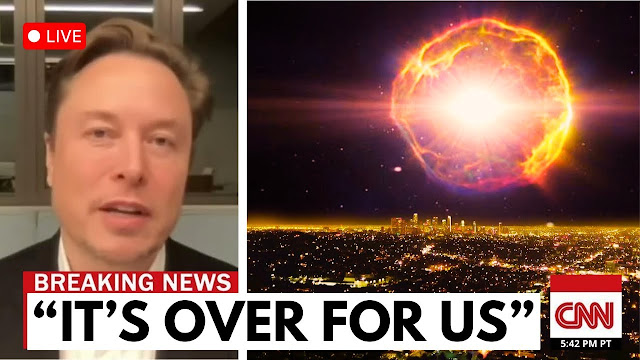Over the last week or so, gossip has been spreading all over the internet that the red supergiant star Betelgeuse "is going to explode" — and with it, eliminate all life on Earth in two weeks. Doomsday videos and shocking headlines have asserted that the supernova from the star will destroy the planet or even the solar system.
But is there any truth to it?
Let's cut through the rumor and fiction.
What Is Betelgeuse?
Betelgeuse (say "Beetlejuice") is a giant star in the constellation of Orion, around 642 light-years away from our planet. It's a red supergiant that's reaching the final stages of life, and it's one of the brightest and largest stars in the sky observable from Earth.
Since it's so massive and ancient, scientists believe that Betelgeuse will someday explode in a brilliant supernova. This will be one of the most impressive astronomical phenomena that can be seen from our planet — but not something that will kill us.
The Cause of the Panic
That latest bout of panic has some basis in actual science. Astronomers have observed over the last few years that Betelgeuse has periodically faded noticeably — including a well-publicized fade in brightness in late 2019. That sparked rumors that the star might be nearing the end of its life.
But whereas it's correct that Betelgeuse will supernova someday, "someday" in space means anywhere between tomorrow and 100,000 years from now.
There's no scientific data indicating this is going to occur in two weeks — or that it would even be dangerous if it did.
Will a Betelgeuse Supernova Destroy Earth?
No.
When Betelgeuse does finally blow, the spectacle will be breathtaking to watch from Earth — perhaps as luminous as a full moon, even visible during the day for several weeks.
But it won't kill us. Here's why:
Betelgeuse is too distant (more than 600 light-years away) for the explosion's damaging radiation to hit Earth in lethal quantities.
A supernova would have to be around 50 light-years away to threaten our world seriously.
Light and neutrino emissions would be the main effects of such a distant supernova — both of which are not harmful to humans in small quantities.
NASA, ESA, and astronomers around the globe concur: Betelgeuse exploding as a supernova would be breathtaking, but not apocalyptic.
So, What Will Happen When It Explodes?
When Betelgeuse finally reaches the end, we’re likely to witness:
A sudden brightening of the star — possibly brighter than Venus or even the Moon
A light show lasting weeks to months
The creation of a neutron star or black hole at its core
Massive data collection by space telescopes and ground-based observatories
It’ll be the astronomical event of the century — not the end of the world.
Final Thoughts
While it's fun to speculate and imagine cosmic catastrophes, let's keep our feet on the ground when it comes to science. Betelgeuse will boom — but boom won't doom.
So no, we're not two weeks from utter extinction. But
we may — in astronomical terms — be just a blink from the most amazing light
display human eyes have ever witnessed.





0 Comments